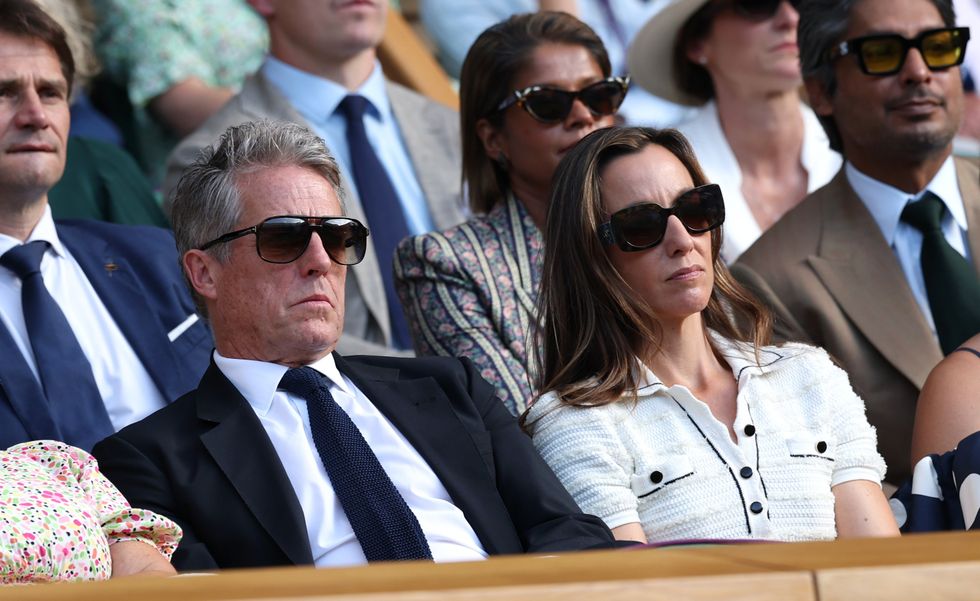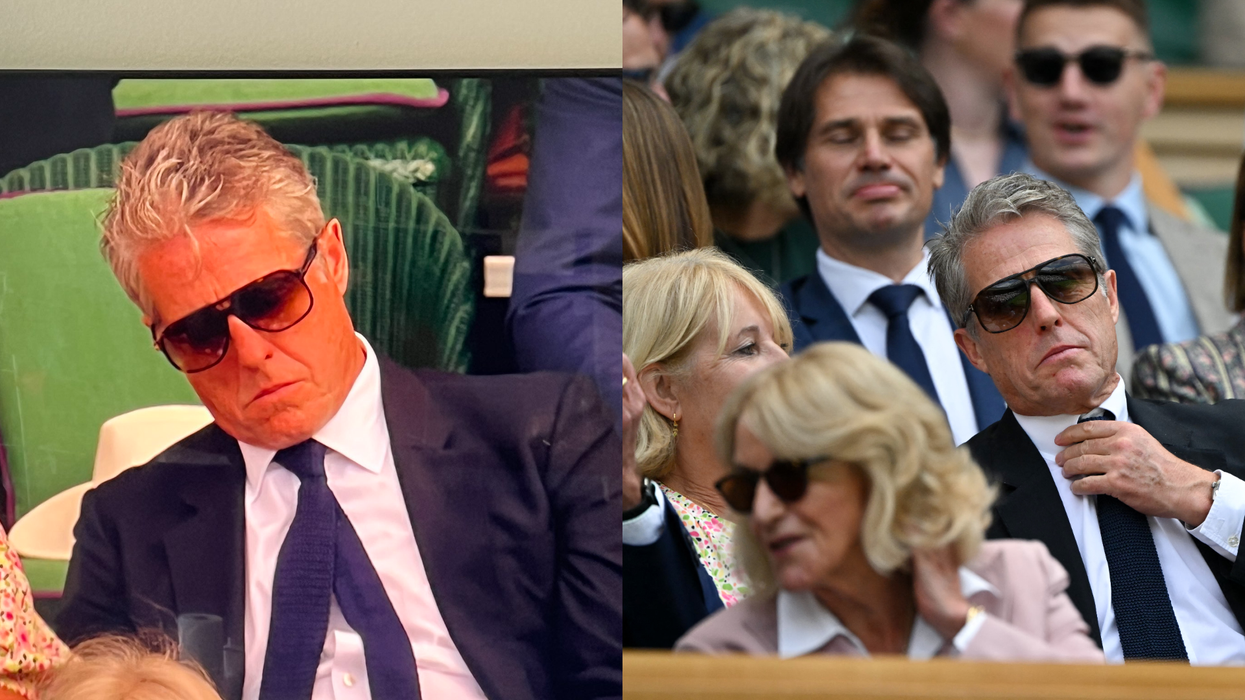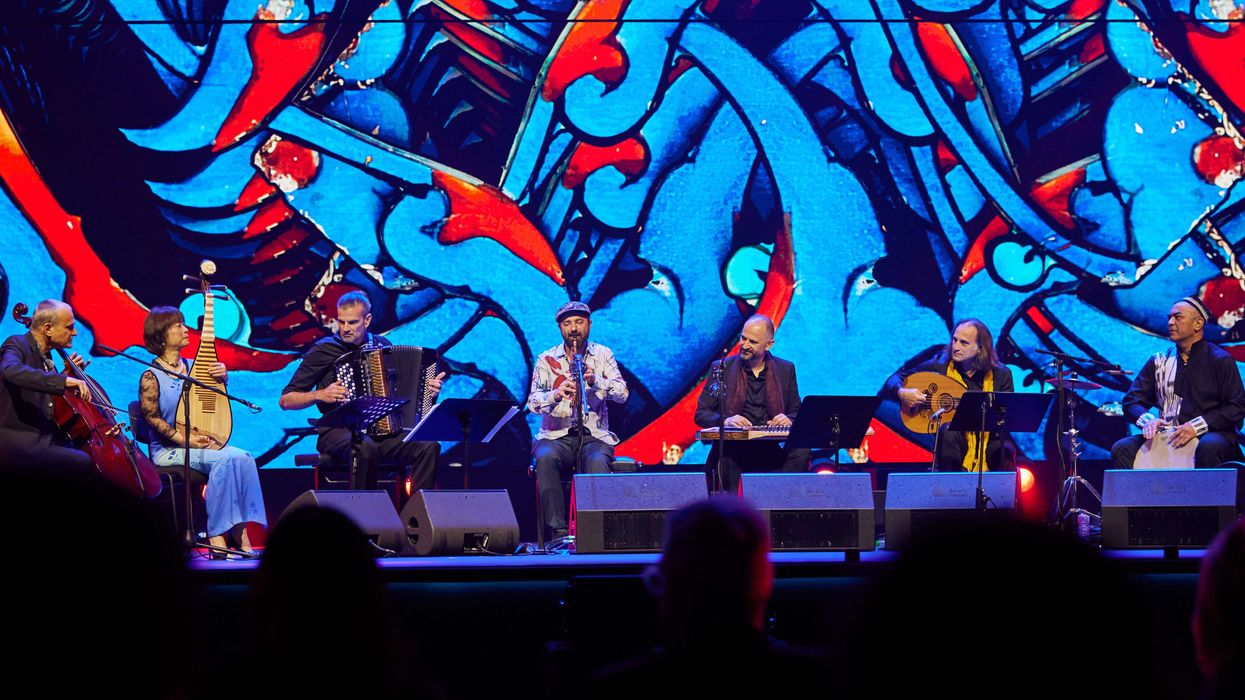Highlights:
- Hugh Grant was spotted napping during the Djokovic vs Cobolli quarter-final at Wimbledon 2025.
- The actor sat in the Royal Box just behind Queen Camilla and her sister.
- Social media erupted with memes, jokes, and criticism, calling it the “£700 (₹74,200) nap.”
- Novak Djokovic made history in the match, advancing to his record-breaking 14th Wimbledon semi-final.
British actor Hugh Grant unexpectedly stole attention from Wimbledon 2025’s quarter-finals, not for a performance, but for taking a mid-match nap. The 64-year-old was captured on camera dozing off in the Royal Box on Wednesday, 9 July, during Novak Djokovic’s high-stakes match against Flavio Cobolli.
Wearing dark sunglasses and seated next to his wife, Anna Elisabet Eberstein, Grant leaned into a deep slouch with his hands in his lap. What made the moment even more of a social media spectacle was his location, just behind Queen Camilla and her sister, Annabel Elliot.

Fans call it the ‘£700 nap’ as Hugh Grant goes viral
While Wimbledon is known for its A-list guest list, few moments have gone as viral as Grant’s sleepy slump. Social media platforms lit up with reactions, some amused, others annoyed.
“Not convinced Hugh Grant is awake,” quipped one user on X, alongside a screenshot from the live broadcast. Another joked, “It’s the most expensive nap in human history.” Yet another user chimed in, “There are fans who queue since 3 am to get into Wimbledon, and Hugh Grant slept through a tiebreak!”
One of the more popular memes labelled it the “£700 (₹74,200) nap,” referencing the estimated cost of premium Wimbledon access. The BBC Sport account cheekily joined in, tweeting: “It’s all got a bit too much for Hugh Grant.”
Hugh Grant chats with Queen Camilla moments before dozing off
Before nodding off, Grant had been seen animatedly chatting with Queen Camilla and her sister. The trio shared smiles in the Royal Box, basking in the summer sun. The sudden shift from conversation to shut-eye added fuel to online jokes, with some playfully nicknaming the moment “Nodding Hill.”
Despite the sleepy slip-up, other attendees, including Cate Blanchett, Joe Alwyn, and Glen Powell, managed to stay fully alert during the tense match.
Djokovic defeats Cobolli to set new Wimbledon semi-final record
The match Grant slept through was far from dull. Serbian tennis star Novak Djokovic bounced back after losing the first set to beat Italy’s Flavio Cobolli in four sets: 6-7 (8), 6-2, 7-5, 6-4. With this victory, Djokovic reached his 14th Wimbledon semi-final, surpassing Roger Federer’s record.
“Obviously, my body is not the same today like it was before,” Djokovic said after the match. “The real impact or effect of what happened, I will feel tomorrow.”
The 38-year-old tennis legend now faces Jannik Sinner in the semi-finals, a rematch that tennis fans have been eagerly anticipating. Sinner has defeated Djokovic in their last four meetings, including the 2025 Roland Garros semi-final and the 2024 Australian Open.
Reactions mixed: Some say it’s relatable, others find it disrespectful
Not everyone found Hugh Grant’s nap disrespectful. Some social media users found the moment charming, saying, “Finally, someone real,” and “When you’re old and rich, you can sleep wherever you want.” Others joked, “We usually sleep during his movies too.”
Still, there was underlying criticism. “Why even bother showing up if you’re just going to sleep through it?” one fan asked. Wimbledon’s Royal Box access is limited and highly coveted, granted via invitation from the All England Club’s chair and affiliated bodies.
Though brief, Grant’s nap became one of the day’s biggest talking points, overshadowing even a record-breaking Grand Slam performance.





